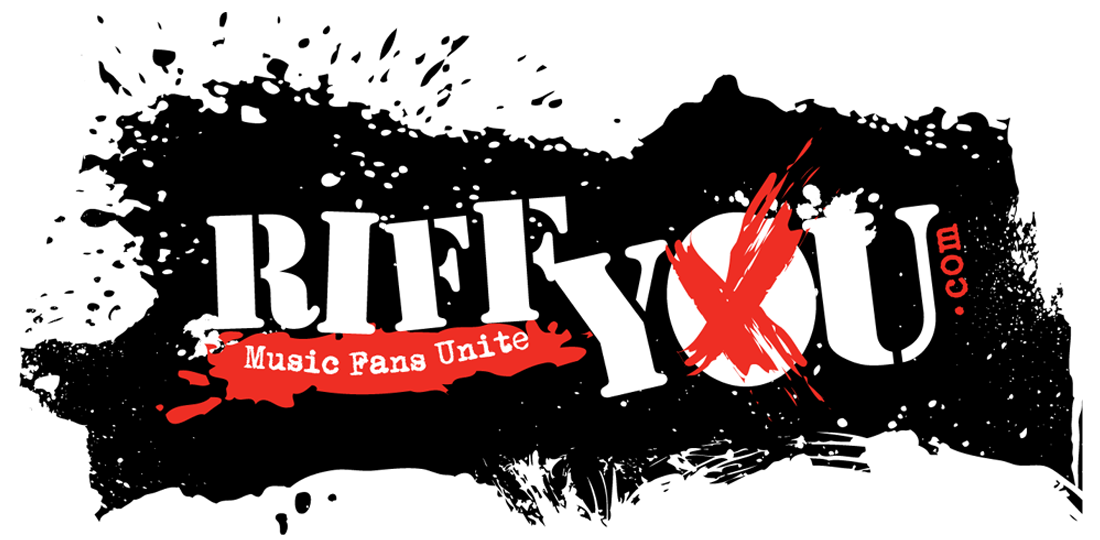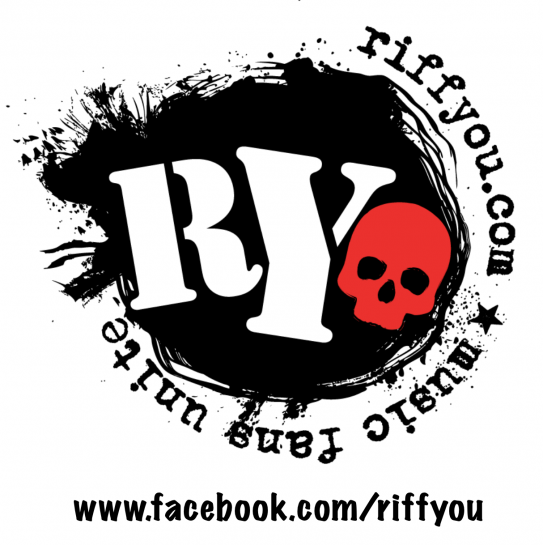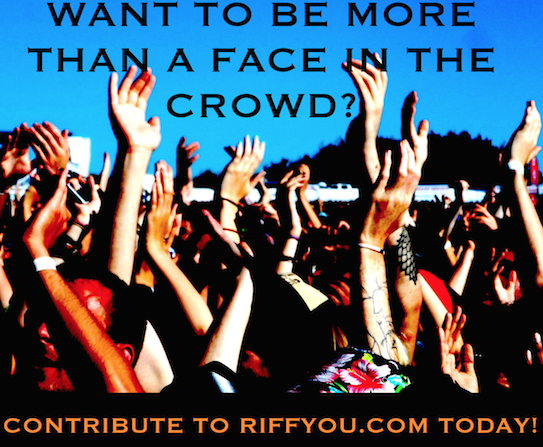Q&A: Buzzcocks Still Hone in on the Human Condition
After 38 years, British punk pioneers, Buzzcocks, are still here. But more importantly than just being here, they remain 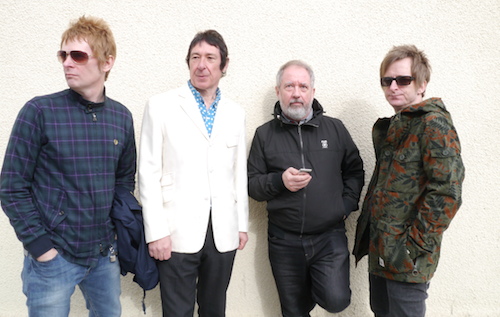 here as a band that still has a substantial creative drive and interest in sharing what they do onstage with a shifting demographic.
here as a band that still has a substantial creative drive and interest in sharing what they do onstage with a shifting demographic.
Still driven by founding member Pete Shelley and Steve Diggle (who entered the fray a handful of months into the band’s existence), and accompanied nowadays by Chris Remmington and Danny Farrant, Buzzcocks recently completed their first album in eight years, The Way.
Helped made possible by a successful crowd-funding initiative on PledgeMusic, the album has already reached those who helped support it, while general public availability is coming next month.
Ahead of the band appearing on all three Riot Fest 2014 stops, Riffyou.com spent some time with Diggle to discuss The Way, musical experimentation, longevity, and carrying the torch for those who helped them bring punk rock up from the underground.
RY: Congratulations on your new album, The Way! What can you tell us about it?
Steve: “We’re done the album now, and it’s all fine and good. Someone has described it as The Beatles’ White Album,” laughs. “It has a lightness and darkness, so I can see what they’re trying to say with that. At first I was kind of surprised, but when you hear the album, you’ll get that side of it. We’re just trying to build a contrast. It works well as an album, as it still has weight and substance. It has pop tunes, but isn’t a pop album. It has some great and heavy riffs.”
RY: Is it still leaning towards the punk side of the scale?
Steve: “Oh yeah. It’s rough and rocking because we did it live [off the floor] in the studio. We wanted to make it sound like we sound on the stage. We wanted that vibe. It has edginess and a serious amount of punk rock going through it. It has those early ‘70s riffs going on,” laughs.
RY: Sometimes there’s not enough of those these days…
Steve: “Exactly. This album reminds me of the very old days before punk rock, and some of it has the catchiness of classic Buzzcocks tunes. I’ve been saying that it’s more like our Exile on Main Street, but then somebody says it’s like the White Album, so you can sense the different directions. We’re being slightly experimental and a little indulgent.”
RY: How important is it for you guys to continue to experiment with your sound?
Steve: “We just really enjoy playing live because that’s one thing people can’t fucking download – that means a lot to us as a band. We have electricity and nobody does it like the Buzzcocks. We have a definite thing, and a stage show thing. It’s very important for us to play like that, and we try to take some of that into the studio records.
“It was great to do this record – it came together very quick. Pete and I brought in five songs each, so that it’s an album 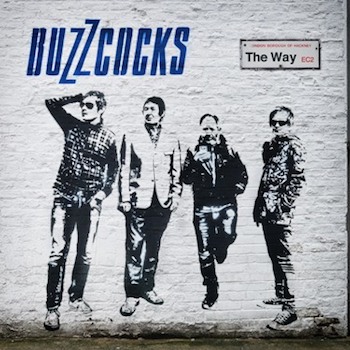 of 10 songs…which makes it more instant. We got together with the band for a couple of days, and then it was just ‘roll the tape,’ or ‘roll the digital fucking thing,’ y’know? The rest of the band had barely learned the songs, so it was like
of 10 songs…which makes it more instant. We got together with the band for a couple of days, and then it was just ‘roll the tape,’ or ‘roll the digital fucking thing,’ y’know? The rest of the band had barely learned the songs, so it was like
sleeping with a new woman for the first time – you can only ever do that once. After that, it’s never the same,” laughs. “We hope the album has that feel.”
RY: Why did you decide to use PledgeMusic as a way to help the album get out there?
Steve: “There aren’t many record companies left, and the ones that are try to tell you to do this, that, and the other. We just heard about PledgeMusic and thought it sounded good. We made our first independent single in 1976, so we thought, ‘why not try this?’ It’s more like a pre-order [situation]. The central-core of our fans just put down their money
and say, ‘when the album comes out, we’ll buy it, so here’s the money now.’ It’s like the early ‘70s when you had to order an album, then wait two weeks to get it. We wanted to see what would happen, and a lot of people pledged. It was then more of a pleasure to make this album.”
RY: Not a lot of bands from your era – especially in the punk community – are still making music, or are even alive. How have you guys managed to survive all of these years?
Steve: “There’s still that electricity and passion in our veins. The band’s better than ever now. Every time you play live, there’s always something new that you learn about yourself – this is what we do. It’s not a problem for us to tour…it’s in our blood. Sure, we could stop, but what’s the point of that?
“There are so many young kids that are into the music and discovering it more each day. They come to see us, and we’re like, ‘wow, we haven’t seen anything like this before.’ It’s great. A lot of our contemporaries are not around now, so [the young fans] may have heard some of the records of those other bands, but they get a chance to see us. I’m quite blown away by it. Like, ‘fuck I wish we could go back in time.’ But at least we’re here now,” laughs.
RY: Do feel like you have a duty to carry the torch for bands like The Clash, Ramones, and Sex Pistols, and other bands that aren’t around or playing anymore?
Steve: “We miss all of them, because they’re our contemporaries. We do miss all of those bands being around…that was our era. We all started together…that was our school in the summer of 1976 and ’77. But, Ramones are dead, Joe Strummer is dead, and we’re still carrying on, waving the flag for them.”
RY: What was it like for you to witness the emergence of Sex Pistols?
Steve: “It was amazing. You have to remember that when Sex Pistols started, [punk rock] was all brand new. Even though rock n’ roll came around before, Sex Pistols sounded brand new and it was the start of a golden era. So when they came onto the stage, it was like a cross between The New York Dolls, The Stooges, and all of these other things.
“[Back then], there were a lot of progressive rock bands about, where one song would last a whole album. Sex Pistols came about and could do, maybe, three-minute songs. That was mind-blowing at the time. It was like, ‘what the fuck? These little fuckers don’t give a fuck!’ They didn’t care. They were like ‘please yourselves.’
“That’s exactly how we felt as well. [We thought] ‘we’re not here to entertain you; we don’t want to be loved. We’re just getting up and doing this.’ We wanted [and still want] reaction and excitement.
“That connected with people right away. They thought, ‘fucking hell, I’m alive again. What have I been listening to? 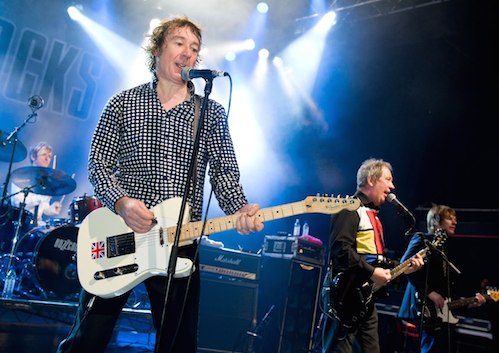 What have I been doing? What was my life before this?’ [Punk] entered into your consciousness and made you think about what rock music meant to you anymore, and what this is doing.”
What have I been doing? What was my life before this?’ [Punk] entered into your consciousness and made you think about what rock music meant to you anymore, and what this is doing.”
RY: Isn’t that the thing with punk rock – you can’t really get into it halfway? It’s all or nothing?
Steve: “Oh sure, yeah. We just did what we wanted to do and say what we needed to say. It could last one day, two days, or a week…it didn’t matter. This is what we wanted to do. We wanted to challenge the audience and get the audience involved. We wanted to make them feel alive, and make ourselves feel alive. We sing about the human condition: sad things, happy things, and weird things that people could instantly relate to – that we’re dealing with. It’s really important to get that through on a record.
“People have to relate to it…[the music] made them reach within themselves and give them strength. Then we could say, ‘hey, we’ve got this thing going and we can look at life differently now.’ It was a real shot in the arm – and it still is now when we get on the stage. We’re not fucking Coldplay,” laughs. “We want to see people come alive.”
(Be sure to catch Buzzcocks at Riot Fest in Toronto! For more information and to win tickets to the event, click here!)
-Adam Grant
-Main photo by: Leone Cullinane
Please be sure to follow us on Twitter @riffyou and at Facebook.com/riffyou.
